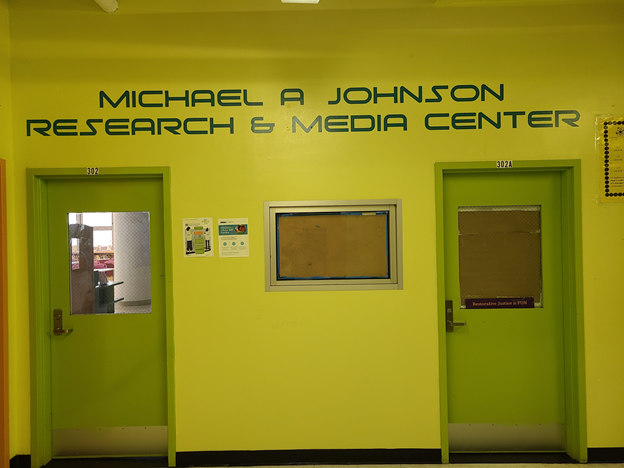(With gratefulness and appreciation to Al Vann and Milfred Fierce; who taught a reluctant teenager about the importance of studying Black History. And to John Henrik Clarke and Kenneth Clark who taught a “knew it all” undergraduate at CCNY, that there was a great deal more he needed to know to call himself educated; thank you all for your patience, with a growing me)
“The more I read, the more I was led to abhor and detest my enslavers. I could regard them in no other light than a band of successful robbers, who had left their homes, and gone to Africa, and stolen us from our homes, and in a strange land reduced us to slavery…..” –Frederick Douglass, Narrative of the Life of Frederick Douglas
“When you control a man’s thinking you do not have to worry about his actions. You do not have to tell him not to stand here or go yonder. He will find his ‘proper place’ and will stay in it. You do not need to send him to the back door. He will go without being told. In fact, if there is no back door, he will cut one for his special benefit. His education makes it necessary.” –Carter G. Woodson, The Mis-Education of the Negro
Teach the children a history that includes the struggle for freedom and dignity; and why the ability to read a book, to know and master mathematics, science, writing, technology, the arts, music are the best and most feared weapons in the hands, and heads of the disenfranchised and disinherited. And so celebrate this month by (a) Reading a Powerful Book. (b)Teaching a child to read. (c) Strengthening a child’s reading skills. (d) Providing a reading child with a powerful reading level appropriate book. I ask you the adults to extend your “Gifted Hands” (Ben Carson) and explore “The Souls of Black Folk” (W.E.B. Du Bois); knowing “They Came Before Columbus” (Ivan Van Sertima);in “Precolonial Black Africa” (Cheikh Anta Diop); and “Before the Mayflower” (Lerone Bennett), to understand “How Europe Underdeveloped Africa” (Walter Rodney) and thus gave birth to “Capitalism & Slavery” (Sir Eric Williams); And yet we fought to come “Up from Slavery” (Booker T. Washington), and “From Slavery To Freedom” (John Hope Franklin); for “There is a River” (Vincent Harding) and “The Negro Speaks of Rivers” (Langston Hughes) and crossing over into freedom. All this has taught me that “Nothing’s Impossible” (Lorraine Monroe), and that I always have “A Choice of Weapons” (Gordon Parks) to take me above and beyond the “Fences” (August Wilson) and barriers that hold me artificially captive “In the Castle of My Skin” (George Lamming). Nothing worthwhile is easy, and there will be some setbacks. However, “The Struggle Is My Life” (Nelson Mandela), and sometimes “Things Fall Apart” (Chinua Achebe); yet despite “The Wall” (Gwendolyn Brooks), we continue to try; at times, we feel we are the “Sport Of The Gods” (Paul Lawrence Dunbar) and hide our failure inside “The House Behind the Cedars” (Charles W. Chesnutt); and sometimes it is with great sorrow that we still try, for it is “Not Without Laughter” (Langston Hughes), for “Behind the Mountains” (Edwidge Danticat), behind every obstacle is “A Love Supreme” (John Coltrane) and our “Ancestral Memories” (Romare Bearden) of being “Born to Rebel” (Benjamin E. Mays). And we may be “A Long Way From Home” (Claude Mckay); and yet “Here I Stand” (Paul Robeson), knowing “The Measure of Our Successes” (Marian Wright Edelman) is the success of “Other Peoples Children” (Lisa Delpit); not just our own, that counts in the end. This may mean raising a lot of “Cane” (Jean Toomer); drawing and letting loose “The Arrow Of God” (Chinua Achebe) upon the forces of denial; but “In Love and In Struggle” (Alice Walker) we must push on as “The Beautiful Ones Are Not Yet Born” (Ayi Kewi Armah). So “Weep not Child” (Ngugi Wa Tiong’o), for the “Interpreters” (Wole Soyinka) have given great thought as to how a “Native Son” (Richard Wright), an “Invisible Man” (Ralph Ellison) could become “No Longer at Ease” (Chinua Achebe) in the land of his birth. How could a man be convinced to become a “Boy” (Ferdinand Oyono) in the land of promise? And yet “Still We Rise” (Maya Angelou) to every challenge, to every setback. “If Beale Street Could Talk” (James Baldwin) and offer us the “Revelations” (Alvin Ailey) of our sprits, they would say that this is “The Price of the Ticket” (James Baldwin) and the reason “Why We Can’t Wait” (Dr. Martin Luther King, Jr.) or get discouraged; for we must “Believe” (Desmond Tutu) and gather “Quiet Strength” (Tony Dungy) from each other; because even in the worst of times there were shining examples of “Blacks In Science” (Ivan Van Sertima) and a “Parable of the Talents” (Octavia Butler);and in those horrible difficult times we saw the brilliance of “Banneker” (Rita Dove). The “Strong Men” (Sterling Brown) and “Our Mothers Who Gave us Birth” (Sonia Sanchez) planted “God’s Bits of Wood” (Ousmene Sembene) that blossomed into “Afrolantica Legacies (Derrick Bell); this gave us the strength to struggle and the “Strength to Love” (Martin Luther King). And so “Lord, the people have driven me on” (Benjamin E. Mays); our great intellectual traditions enshrined in the “Ark of Bones” (Henry Dumas); We keep these sacred truths “On Call” (June Jordan) in our memory of promise. And so I pass on my work in progress, to those “Coming of Age in the Hip-Hop Generation” (Askia Davis Sr. & Jr.) and the generations to follow; I live in, and with the hope that they will always have “The Courage to Hope” (Cornel West); the very “Audacity of Hope” (Barack Obama) that will lift even the “Whispers from a Continent” (Wilfred Cartey); they will then be able to “Lift Every Voice And Sing” (James Weldon Johnson); and they won’t ever, ever “Let Nobody Turn Us Around” (Manning Marable)!
MAJ/2/8/13
